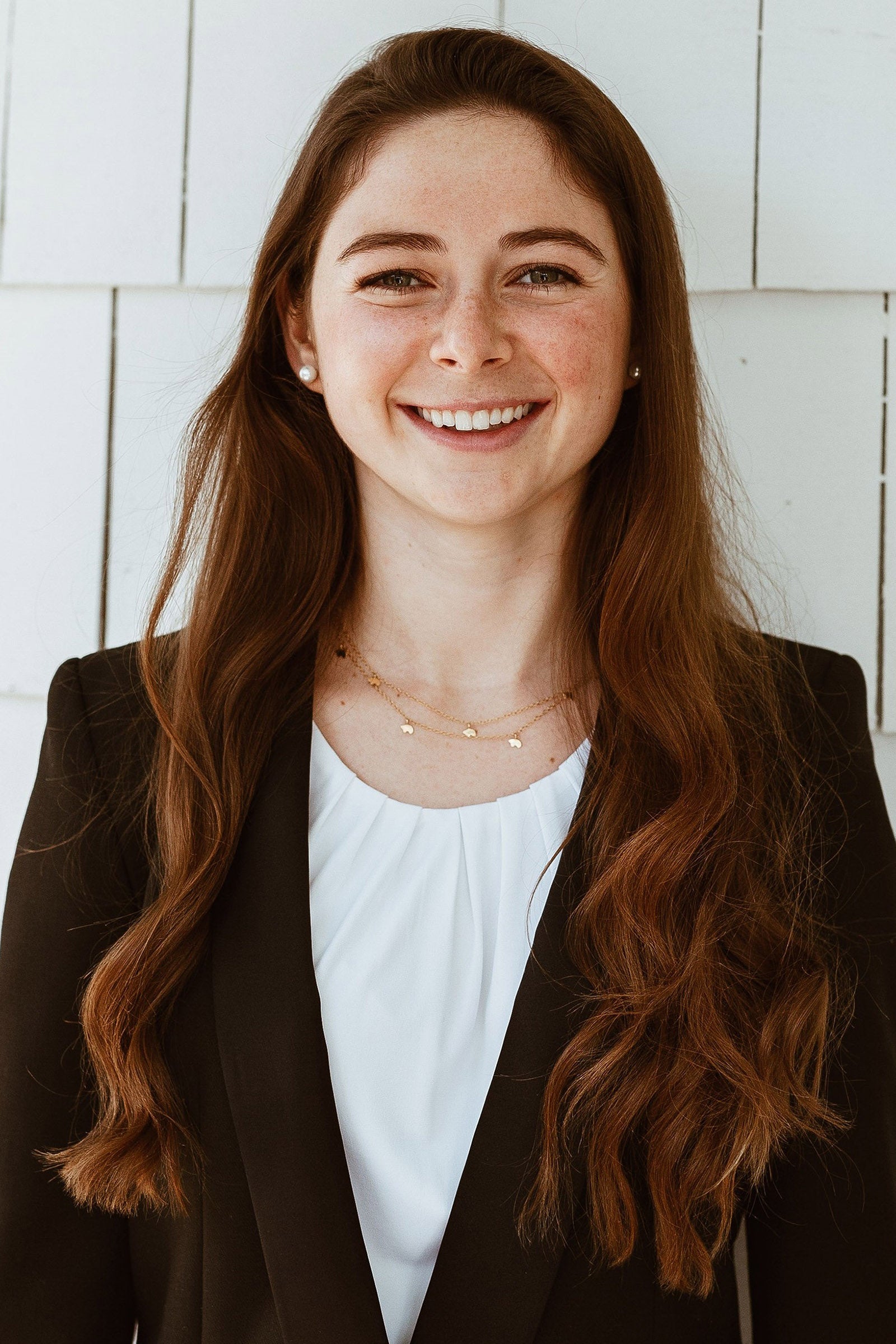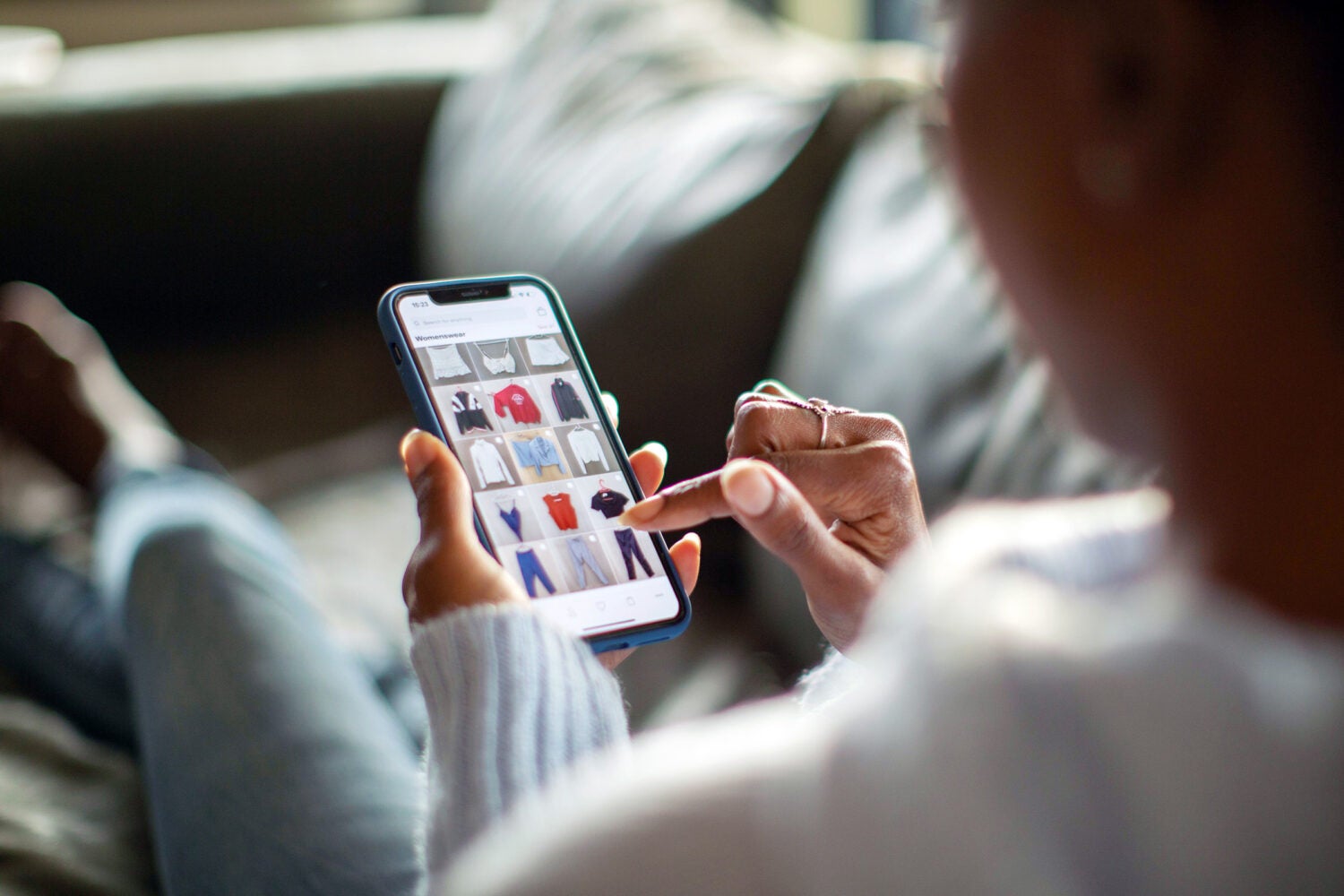It’s almost too easy to buy something online: With the click of a button, Amazon will whisk you a new coat or a pair of Levi’s or even a pricey designer handbag. But what if buying secondhand items online was just as simple — what if purchasing a preowned pair of your favorite jeans was less of a chore and more like a treasure hunt?
That’s the idea behind Sift, a browser extension and website that helps internet shoppers track down used versions of clothing and other products. The growing startup is run by a team that includes Harvard Law School student Annabelle Hutchinson ’26, who says that the company’s goal is not only to save users money, but also to reduce the waste associated with the production of an estimated 150 billion new pieces of clothing each year.
“The stigma against secondhand items has deteriorated,” she says. “We want to be a resource that not only supports a more sustainable way of consuming, but also helps people find luxury items at a lower price than they otherwise would be able to.”
As an investment banker, then graduate student, and now first-year at Harvard Law School, Hutchinson has long been interested in how people and economies collide, including how concerns about the environment can be addressed in the global marketplace.
“I’m interested in thinking about how we organize ourselves,” she says. “What obligations do we owe others? What do they owe to us? These things inform how the world works and how public and private entities govern themselves.”
Hutchinson hails from Annapolis, Maryland, where she was an avid sailor — a sport she still enjoys today. She attended Brown University, majoring in economics and classics. During her third year, Hutchinson applied to Harvard Law School through its Junior Deferral Program, which enabled her to pursue additional opportunities before attending.

“There are so many different people passionate about so many different things,” she says of Harvard Law. “I knew that whatever I might be interested in I could find someone who shares that, which wouldn’t have been possible elsewhere.”
Bachelor’s degree in hand, Hutchinson first landed a job as an investment banker at J.P. Morgan as part of its private equity group. Then, on a whim, she decided to pursue a nine-month graduate program at the University of Oxford. In the United Kingdom, she studied geopolitics, supply chains, and economic interdependence, and began thinking more about how environmental sustainability could fit within a growing global economy.
One day, while working in a coffee shop in Oxford, she overheard people at a nearby table speaking with American accents. She didn’t think much of it until she heard one of the people mention her alma mater, “and I had to interrupt them to find out what they were talking about,” she laughs.
The man turned out to be a fellow Brown alum named David Chu. He and Hutchinson began talking, and Chu explained that he had recently begun working on an idea for a tech startup that would use artificial intelligence to help shoppers find secondhand products online. Hutchinson was instantly intrigued. “He was so gung-ho,” she says. “I was also really excited, and I agreed to come on and help.”
Hutchinson says that although used versions of many products exist — on sites like Etsy, eBay, Poshmark, and others — it can be difficult to track down the item you want in exactly the right size or color or other feature you care about, says Hutchinson. “Searching for secondhand clothing is often inefficient and fragmented,” she says. “Items aren’t always labeled correctly, and you need to search on multiple sites to find what you want.”
That’s where Sift comes in. Shoppers can use the browser extension or website to type in a description or upload a photo of a product they are looking for, and AI-powered technology hunts for secondhand versions available for sale across the internet.
Buying secondhand means fewer items headed to the landfill, says Hutchinson. “And we think that, if we can make buying secondhand convenient, the odds of a person doing so goes way up.”
“At the end of the day, the world can’t make an infinite number of new shoes.”
Before Hutchinson joined Sift, the team’s focus had been on coding and developing the tech’s software. As the first Sift team member without a computer science background, Hutchinson brought her skills in strategy and finance, helping to write the company’s business model and expand its user base.
Since then, Sift has expanded, and Hutchinson continues to play many parts, including working with Harvard Innovation Labs’ community of entrepreneurs to test and promote the technology. “With a startup, everyone wears a lot of hats,” she says. “Part of my role is to help coordinate everyone to work in a cohesive way to engage in a singular vision.”
Today, Hutchinson is in her first year at Harvard Law, where she says she wants to explore what the school has to offer and continue building on her background in business and global governance. “Law serves as an underlying substructure of our social and political world,” she says. “I am interested in learning how that network of rules governs peoples’ behavior.”
Thinking toward the future, she says her career interests lie at the intersection of business, technology, and law. “But exactly where I’ll land has yet to be determined,” she says. In the meantime, Hutchinson adds, “Sift has been such an important way to keep my interest in venture capital and private equity alive as I continue in my studies at HLS.”
It is also a way she can further her interest in global sustainability. After all, Hutchinson says, “At the end of the day, the world can’t make an infinite number of new shoes.”
